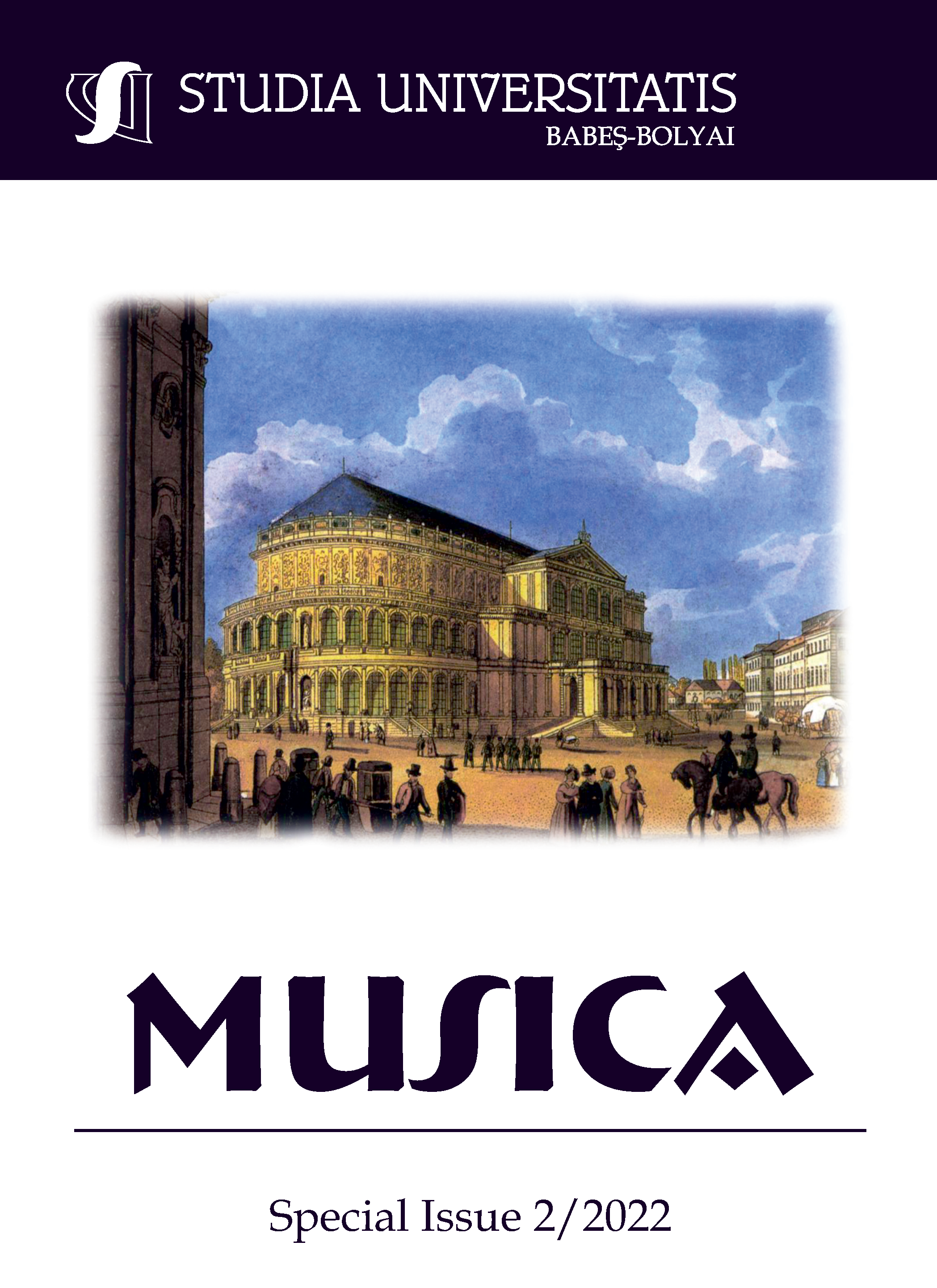FUNDAMENTAL ANALYSIS OF CHICK COREA’S IMPROVISATION IN "SPAIN" (1972)
DOI:
https://doi.org/10.24193/subbmusica.2022.spiss2.07Keywords:
jazz, piano improvisation, spontaneity, creativity, harmonical knowledge, contemporaryAbstract
Modern jazz can be considered an equal part of modern music, owing to the numerous experiments, at times considered strange or not really agreed by the audience. When talking about modern musical life and the possibilities for making music in a proper manner, no doubt that the value and genius of composers like Wolfgang Amadeus Mozart or Ludwig van Beethoven must be recognized. However, one must also realize that modern life, with its modern, contemporary music is also needed. The great jazz saxophonist, Charlie Parker considered improvisation the middle of the earth, the place where, if only for a few brief moments, one can be the best and the greatest composer in the world. Furthermore, the idea of a song (theme) is the only reason for musicians to come and elaborate together, with variational spontaneity, a unique and maybe unrepeatable musical manifestation. The works of Chick Corea reflect this point of view, as the analysis of the work Spain (1972), discussed in the article bellow, will demonstrate. The work represents the fusion between Spanish music and the compositional methods of modern jazz music, reflecting Corea’s unique style. Improvisation lies at the basis of this composition, offering the musician a multitude of possibilities for expressing his ideas regarding freedom and human nature.
References
*** The Concise Oxford Dictionary of Music, Oxford Paperback References, Oxford University, 1996.
*** Rudiments and Theory of Music based on The Syllabus of Theory Examination of Royal Schools of Music, published by The Associated Board of the Royal Schools of Music, London, 1958.
Chinen, Nate. Playing Changes Jazz for the New Century, Pantheon Books, Knopf Doubleday Publishing Group, New York, 2018.
Cook, Nicolas. Music a very short Introduction, Oxford University Press (OUP) Limited Company, Oxfordshire, 2000.
Corea, Chick. A work in Progress…On being a Musician, Milwaukee, MCA Publishing, 1999.
Corea, Chick. Music Poetry by Chick Corea, Los Angeles, Litha Music, 1980.
Corea, Chick. The Essential of Chick Corea, Los Angeles, Litha Music, 1982.
Fedele, Daniel. The Pentatonic Scales Workbook a Step by Step Guide for Musicians, Art Music, Hamburg, 2016.
Granadas, Manuel. Manual didactico de la guitarra flamenco, Ventilador Edicions, Barcelona, 1995.
LaVerne, Andy. Handbook of Chord Substitutions, Ekay Music Inc., New York, 1991.
Levine, Mark. The Jazz Piano Book, Sher Music, Petaluma California, 1989.
Moody, Gregory. Handbook of Harmony Substitution and Passing Chords, Music Publish, Create Space Independent Publishing Platform, 2010.
Pease, Ted. Jazz Composition Theory and Practice, Berklee Press, Berklee University Boston, 2003.
Richards, Tim. Exploring Jazz Piano, Schott Verlag, Mainz, 2005.
Russell, George. The Lydian Chromatic Concept of Tonal Organisation, Concept Pub. Co., Brookline, Massachusetts, 2001.
Waite, Brian. Modern jazz Piano, A study in harmony and Improvisation, New York, Hippocrene Books,Spellmount Publications, 1987.
Downloads
Published
How to Cite
Issue
Section
License
Copyright (c) 2022 Studia Universitatis Babeș-Bolyai Musica

This work is licensed under a Creative Commons Attribution-NonCommercial-NoDerivatives 4.0 International License.






